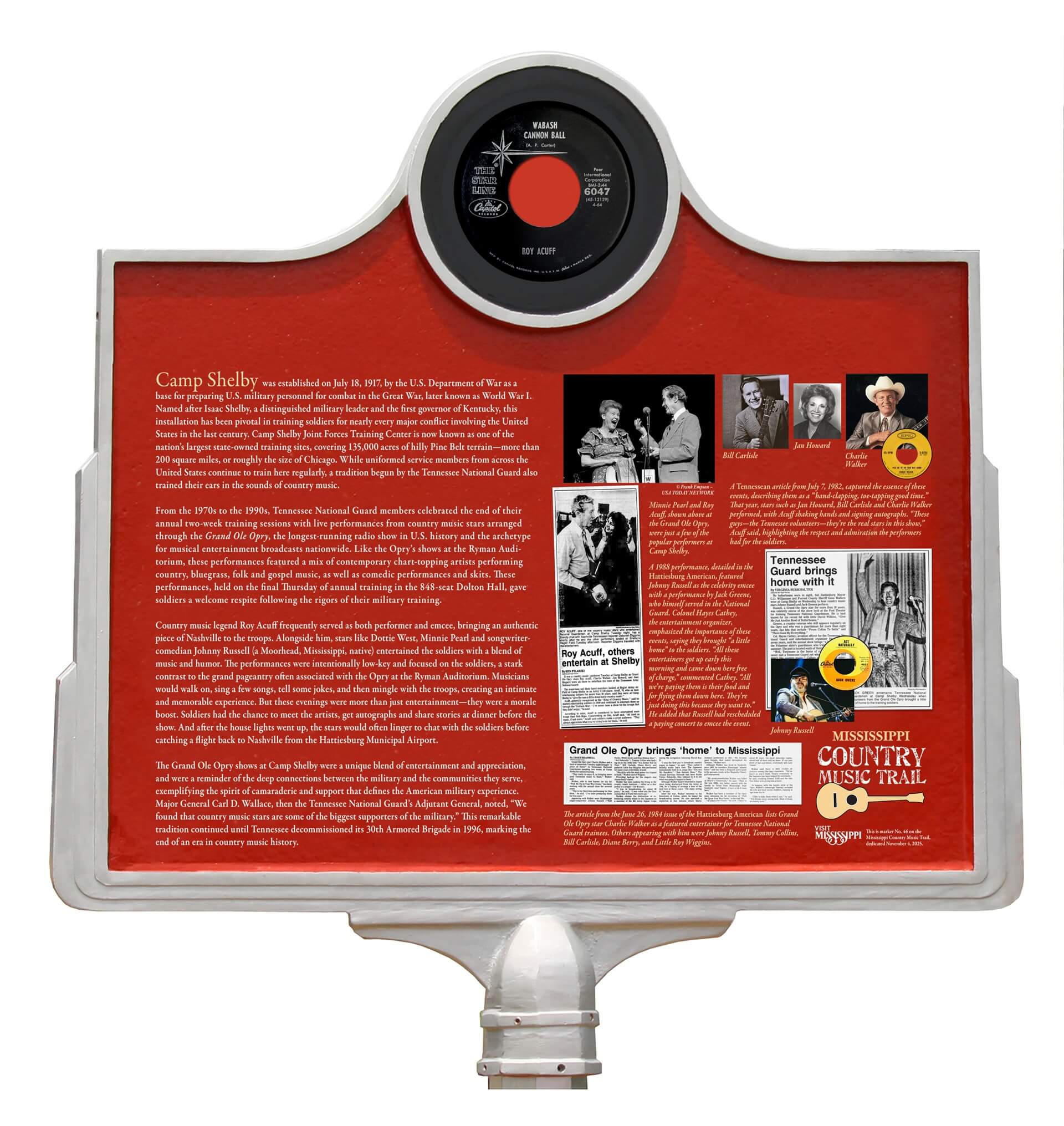Camp Shelby

More than a million American soldiers have trained at Camp Shelby Joint Forces Training Center since 1917, when it was established to prepare the U.S. Army for World War I. In later years, the Tennessee National Guard brought familiar country music stars from Nashville to entertain troops while they trained. From the 1970s through the 1990s, artists such as Charlie Daniels, Minnie Pearl, Roy Acuff, and members of the Grand Ole Opry entertained thousands of troops at Dolton Hall.
Camp Shelby was established on July 18, 1917, by the U.S. Department of War as a base for preparing U.S. military personnel for combat in the Great War, later known as World War I. Named after Isaac Shelby, a distinguished military leader and the first governor of Kentucky, this installation has been pivotal in training soldiers for nearly every major conflict involving the United States in the last century. Camp Shelby Joint Forces Training Center is now known as one of the nation’s largest state-owned training sites, covering 135,000 acres of hilly Pine Belt terrain—more than 200 square miles, or roughly the size of Chicago. While uniformed service members from across the United States continue to train here regularly, a tradition begun by the Tennessee National Guard also trained their ears in the sounds of country music.
From the 1970s to the 1990s, Tennessee National Guard members celebrated the end of their annual two-week training sessions with live performances from country music stars arranged through the Grand Ole Opry, the longest-running radio show in U.S. history and the archetype for musical entertainment broadcasts nationwide. Like the Opry’s shows at the Ryman Audi-torium, these performances featured a mix of contemporary chart-topping artists performing country, bluegrass, folk and gospel music, as well as comedic performances and skits. These performances, held on the final Thursday of annual training in the 848-seat Dolton Hall, gave soldiers a welcome respite following the rigors of their military training.
Country music legend Roy Acuff frequently served as both performer and emcee, bringing an authentic piece of Nashville to the troops. Alongside him, stars like Dottie West, Minnie Pearl and songwriter-comedian Johnny Russell (a Moorhead, Mississippi, native) entertained the soldiers with a blend of music and humor. The performances were intentionally low-key and focused on the soldiers, a stark contrast to the grand pageantry often associated with the Opry at the Ryman Auditorium. Musicians would walk on, sing a few songs, tell some jokes, and then mingle with the troops, creating an intimate and memorable experience. But these evenings were more than just entertainment—they were a morale boost. Soldiers had the chance to meet the artists, get autographs and share stories at dinner before the show. And after the house lights went up, the stars would often linger to chat with the soldiers before catching a flight back to Nashville from the Hattiesburg Municipal Airport.
The Grand Ole Opry shows at Camp Shelby were a unique blend of entertainment and appreciation, and were a reminder of the deep connections between the military and the communities they serve, exemplifying the spirit of camaraderie and support that defines the American military experience. Major General Carl D. Wallace, then the Tennessee National Guard’s Adjutant General, noted, “We found that country music stars are some of the biggest supporters of the military.” This remarkable tradition continued until Tennessee decommissioned its 30th Armored Brigade in 1996, marking the end of an era in country music history.
Photos courtesy of Justin Peters. Label scans and research by Barry Mazor.
